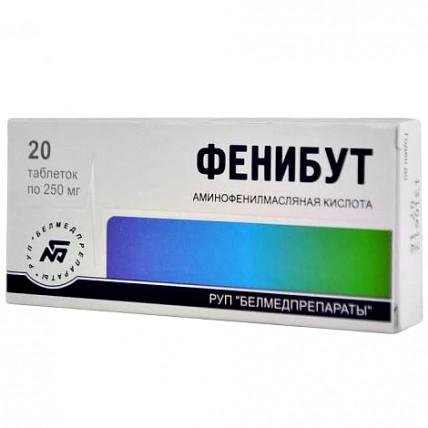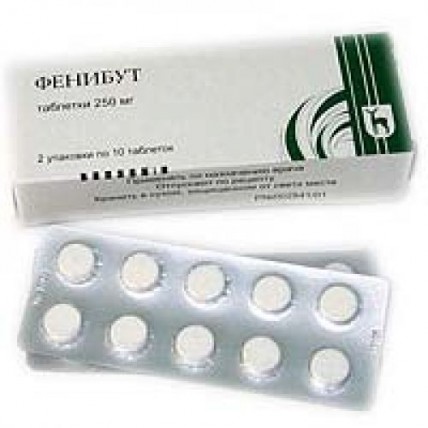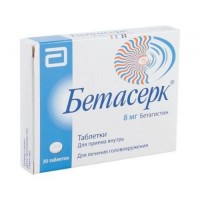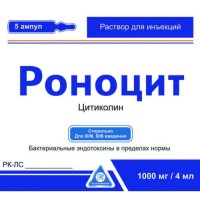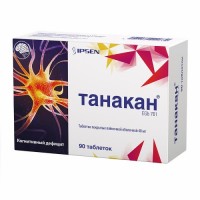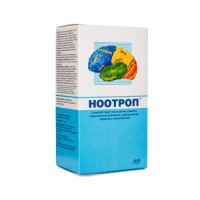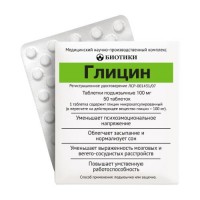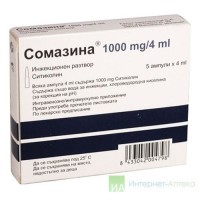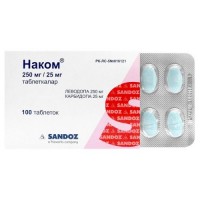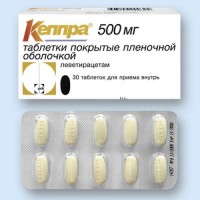Phenibut (Phenybut) 250 mg (20 tablets)
- $13.00
Out Of Stock
PHARMACODYNAMICS
Phenibut has both nootropic and anxiolytic properties. It eliminates tension, anxiety and fear as well as improves sleep. The drug lengthens the latent period and shortens the duration and severity of nystagmus, and has an anti-epileptic effect.
Phenibut diminishes asthenia and vasovegetative symptoms, including headache, “heavy head” feeling, sleep disturbances, irritability and emotional lability. At the same time it increases mental performance and improves psychological indicators: attention, memory, speed and accuracy of sensory-motor reactions.
Starting from the first days of therapy patients notice that they feel healthier, show more interest and initiative and feel more motivation for action.
After severe craniocerebral injury Phenibut increases the number of mitochondria in the perifocal areas and improves the course of bioenergetic processes in the brain.
Phenibut also acts as an antioxidant.
When used in the elderly Phenibut does not cause loadedness or excessive apathy.
The drug normalizes the processes of lipid peroxidation. Phenibut does not affect cholinergic and adrenergic receptors.
PHARMACOKINETICS
Phenibut has a high absorption. The drug penetrates easily into all tissues of the body and overcomes the blood-brain barrier (BBB). About 0.1% of the administered dose of the drug penetrates into the brain tissue (in young and old people to a much greater extent). Phenibut is evenly distributed in liver and kidneys. The drug metabolizes in liver up to 80-95%, the metabolites are not pharmacologically active. Phenibut does not cumulate. After 3 hours it begins to be secreted by kidneys, however its concentration in the brain tissue does not decrease and it can be found in the brain for another 6 hours. About 5% of the drug is excreted unchanged by kidneys and partly with bile.
INTENDED USES
asthenic and anxiety-neurotic states, anxiety, fear, obsessive-compulsive disorder, psychopathy;
(in the elderly) insomnia, night anxiety;
vestibular disorders, prevention of motion sickness, Ménière’s disease;
stress prevention before surgery or painful diagnostic tests;
as an auxiliary in the treatment of alcohol withdrawal syndrome (to counteract psychopathological and somatic vegetative dysfunction);
residual effects after traumatic brain injuries;
(in children) stammering, tics, enuresis.
CONTRAINDICATIONS
Individual intolerance to the components of the drug, age below 2 years, pregnancy and lactation.
With caution: Erosive and ulcerative lesions of the gastrointestinal tract and liver failure.
DOSAGE AND ADMINISTRATION
Phenibut should be taken orally after meals. Duration of one standard course is 2-3 weeks.
For adults: 250-500 mg 3 times a day. If necessary, the daily dose can be increased up to 2500 mg. Single maximum dose is 750 mg, in people over 60 years – 500 mg.
For children from 2 to 8 years old: 50-100 mg 3 times a day. Single maximum dose is 150 mg.
For children from 8 to 14 years old: 250 mg 3 times a day. Single maximum dose is 250 mg.
Alcohol withdrawal syndrome: during the first days of treatment 250-500 mg 3 times a day and 750 mg at night, then gradually reduce the daily dose to the normal one for adults.
Dizziness (vestibular system dysfunction and Meniere’s disease): 250 mg 3 times a day for 14 days.
Motion sickness: 250-500 mg once 1 hour before the expected onset of rolling or with the appearance of the first mild symptoms of seasickness. The effect of Phenibut in such cases strengthens with the dosage increase. However, when severe seasickness signs (e.g. vomiting) have already arisen, the administration of Phenibut is ineffective even in doses of 750-1000 mg.
SIDE EFFECTS
(rare) drowsiness, nausea, irritability, agitation, anxiety, dizziness, headache (in the beginning of the therapy) and allergic reactions.
Overdose: Overdose can lead to increased side effects, as drowsiness, nausea, vomiting, arterial hypotension, renal insufficiency. If Phenibut is used for a long time 7-14 g per day, a hepatotoxic effect (including fatty liver dystrophy) and eosinophilia may arise.
In such cases are recommended gastric lavage, symptomatic treatment as well as supportive therapy.
Interaction with other drugs: For the potentiation purposes Phenibut can be combined with other psychotropic agents, but reducing the dosage of both drugs. The drug extends and enhances the effect of sleeping pills, narcotic, neuroleptic and anticonvulsant drugs, alcohol. Phenibut can increase effect of antiparkinsonian agents.
SPECIAL INSTRUCTIONS
With a prolonged use, it is necessary to monitor liver function and peripheral blood parameters.
Pregnancy and lactation: The use of Phenibut is contraindicated during pregnancy and lactation. If you need to take the drug during lactation, breastfeeding should be discontinued.
Influence on the ability to drive vehicles and operate mechanisms: During the course of Phenibut treatment it is recommended to avoid carrying out potentially dangerous activities that require increased concentration of attention and quick psychomotor reactions, as well as driving vehicles.
Terms of release from pharmacy: on prescription.
Storage conditions: store in a dry dark place at temperatures no higher than 25°C. Keep out of reach of children.
Shelf life: 3 years. Do not use beyond the expiration date printed on the package.
